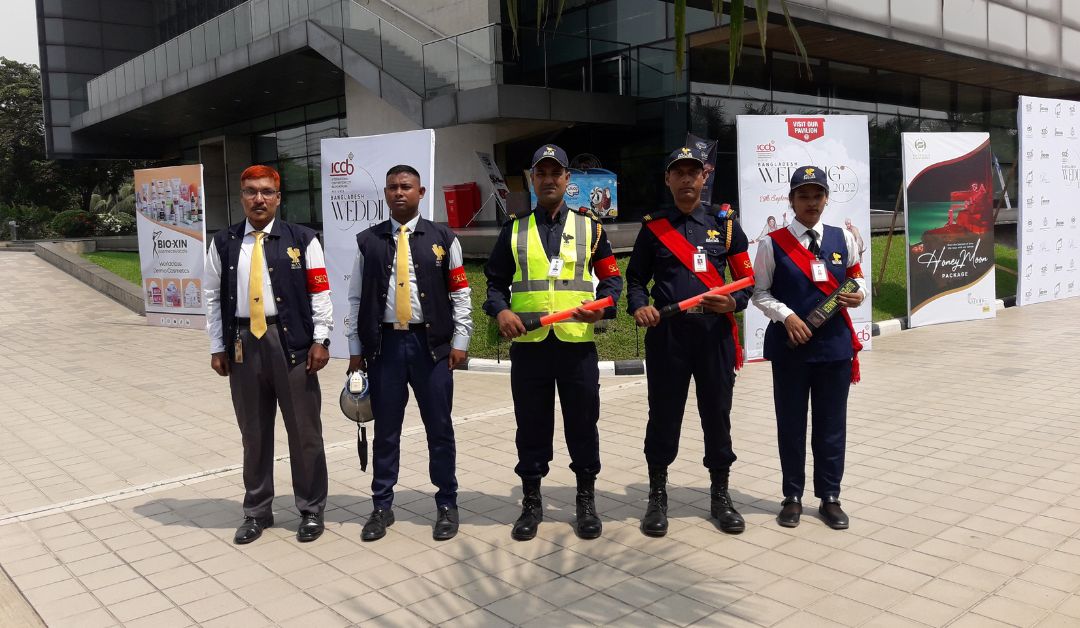In the bustling and diverse landscape of Bangladesh, crime prevention plays a pivotal role in ensuring the safety and well-being of its citizens. From petty thefts to more serious offenses, crime can have far-reaching consequences on society, the economy, and the overall quality of life. One essential component of crime prevention in Bangladesh is the role of security guards. Security guards are often the first line of defense, and their actions can have a profound impact on deterring criminal activities and ensuring public safety.
This content aims to shed light on the significance of security guards in crime prevention in Bangladesh. We will explore the current crime landscape in the country, delve into the responsibilities and roles of security guards, and provide an in-depth analysis of various crime prevention strategies they can employ to make a difference. Furthermore, we will discuss the challenges faced by security guards in their line of duty and share success stories to highlight the positive impact they can have. Lastly, we will provide recommendations for enhancing security guard effectiveness and, in turn, contributing to a safer Bangladesh.
The Current Crime Landscape in Bangladesh
Before we delve into the role of security guards and their crime prevention strategies, it is crucial to understand the current crime landscape in Bangladesh. This knowledge provides context for the challenges and opportunities that security guards face in their line of duty.
Bangladesh, like many countries, faces a range of criminal activities that impact its citizens’ daily lives and overall security. The most common types of crimes in Bangladesh include theft, burglary, robbery, assault, and various forms of fraud. These offenses can occur in both urban and rural areas, affecting individuals, businesses, and communities across the country.
Statistical data on crime rates and trends in Bangladesh provides valuable insights into the severity of the issue. Over the years, there have been fluctuations in crime rates, but some persistent challenges remain. Law enforcement agencies in Bangladesh work diligently to address these issues, but it is essential to recognize that security guards can play a pivotal role in complementing these efforts.
The Role of Security Guards in Crime Prevention
Security guards serve as the front-line protectors of people and property in a variety of settings. They hold a unique position in the field of crime prevention, as their presence can act as a powerful deterrent. Understanding the roles and responsibilities of security guards is critical in appreciating their contribution to public safety.
Security guards are individuals hired to protect a specific area, property, or individuals from criminal activities and other potential threats. Their duties can encompass a wide range of responsibilities, depending on the setting in which they work. These settings may include businesses, residential areas, public spaces, or even events and gatherings.
One of the most fundamental aspects of the security guard’s role is to maintain a visible and vigilant presence. This presence alone can deter potential criminals from attempting unlawful activities. Criminals are less likely to commit crimes when they know that security guards are actively monitoring the area.
Beyond their role in deterrence, security guards are also responsible for various proactive measures, such as access control, surveillance, emergency response, communication, crowd management, and conflict resolution. These responsibilities are intertwined and aim to create a secure environment for individuals and property.
Access control is a crucial aspect of their work, as it involves monitoring and controlling who enters and exits a specific area. By ensuring that only authorized individuals gain access, security guards prevent unauthorized individuals from committing crimes within the premises. This function is especially significant in business settings, where valuable assets and confidential information may be at risk.
CCTV surveillance is another essential tool in the security guard’s arsenal. Surveillance cameras serve as both a deterrent and a means of evidence collection. Guards must be well-versed in positioning and monitoring these cameras effectively to enhance their crime prevention capabilities.
In cases of emergencies and incidents, security guards are expected to respond swiftly and effectively. They receive training to handle various types of emergencies, which may range from medical crises to security breaches. This training ensures that they can provide immediate assistance and coordinate with law enforcement when necessary.
Effective communication is another critical skill that security guards must possess. Clear and timely communication with clients, colleagues, and law enforcement is vital for a coordinated response to potential threats or incidents. Proper incident reporting and documentation also play a significant role in crime prevention by providing a record of events that can aid in investigations and legal proceedings.
In settings that involve large gatherings or events, such as concerts or festivals, security guards must be proficient in crowd management. Ensuring the safety and order of crowds is paramount, as large gatherings can be susceptible to various security risks.
Conflict resolution skills are essential for security guards, as they often encounter disputes and confrontations. The ability to de-escalate tense situations and handle conflicts peacefully is a valuable asset in maintaining a safe environment without resorting to violence.
Moreover, community engagement is becoming increasingly important for security guards. Building positive relationships with the local community can enhance trust and cooperation. Encouraging community involvement in crime prevention efforts can create a more comprehensive and effective approach to security.
Challenges and Obstacles Faced by Security Guards

While security guards play a vital role in crime prevention, they also face several challenges and obstacles in their line of duty. Recognizing these challenges is essential in improving the effectiveness of security guards and their contribution to crime prevention efforts.
- Limited Resources and Training Opportunities: In many cases, security guards in Bangladesh may lack adequate resources and training opportunities. Proper training is essential to equip them with the skills and knowledge required to handle a wide range of situations. Investment in training and resources is necessary to enhance their effectiveness.
- Handling Potentially Dangerous Situations: Security guards may find themselves in potentially dangerous situations, especially when dealing with criminal activities or conflicts. Their safety is of paramount importance, and they need proper training and support to handle such scenarios safely.
- Legal and Ethical Considerations: Security guards must operate within the bounds of the law and adhere to strict ethical guidelines. Violations of these principles can lead to legal consequences and tarnish their reputation. Understanding and navigating the legal and ethical landscape is a constant challenge.
- Maintaining Their Own Safety: While security guards are tasked with ensuring the safety of others, they must also take measures to protect themselves. The nature of their work can expose them to risks, and they must be diligent in maintaining their own well-being.
Success Stories and Case Studies
Real-life success stories and case studies highlight the significant impact that security guards can have in crime prevention. These examples underscore the effectiveness of their strategies and their role in making Bangladesh safer.
Recommendations for Improving Security Guard Effectiveness
To enhance the effectiveness of security guards in crime prevention, several recommendations can be considered:
- Enhanced Training and Certification Programs: The government and private sector should invest in comprehensive training and certification programs for security guards. These programs should cover a wide range of skills, including emergency response, conflict resolution, and crowd management.
- Improved Coordination with Law Enforcement Agencies: Better coordination and communication between security guard services and local law enforcement agencies can lead to more effective crime prevention. Establishing clear protocols for collaboration is essential.
- Technological Advancements and Equipment Upgrades: Security guards should have access to modern security technology, including advanced surveillance systems and communication tools. Upgrading equipment can significantly improve their capabilities.
- Public Awareness and Community Involvement: Promoting public awareness about the role of security guards and encouraging community involvement in security initiatives can enhance the overall security landscape in Bangladesh. Citizens should be informed about how they can contribute to crime prevention efforts.
Further Reading: Role of a Security Guard in Events
Conclusion
In Bangladesh, the role of security guards in crime prevention is of paramount importance. They serve as the first line of defense, working diligently to deter criminal activities, protect property, and ensure the safety of individuals. The challenges they face are significant, but their dedication and commitment to public safety are commendable.
While security guards play a crucial role in crime prevention, there is room for improvement. Enhancing their training and resources, improving coordination with law enforcement, investing in technology, and fostering community engagement are steps in the right direction.
Ultimately, security guards have the potential to make a significant difference in crime prevention in Bangladesh. Their actions can help create a safer and more secure environment for all citizens, contributing to the well-being and prosperity of the nation. Recognizing their value and investing in their development is a vital step toward achieving a safer Bangladesh for all.

